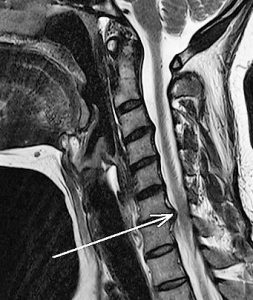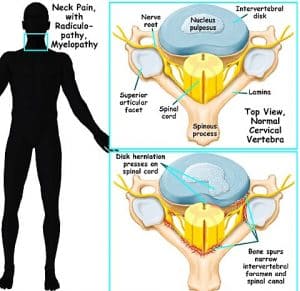Neck Pain Treatment
Discover an unparalleled approach to advanced neck pain treatment at our Interventional Spine and Pain Clinic. Our USP lies in the fusion of cutting-edge technology and personalized care. Unlike conventional methods, we employ state-of-the-art, minimally invasive procedures such as Radiofrequency ablation, laser disc treatment, endoscopic spine procedure, which precisely target the root causes of neck pain, ensuring not only immediate relief but also long-term results. We tailor treatment plans to each individual, offering a transformative experience where innovation meets a commitment to enhancing overall well-being. Choose our clinic for an exceptional and advanced solution to neck pain, redefining the standards of care in spine and pain management.
Book An Appointment
Fill out the form below or call us at +971 50 480 4987 or email us at [email protected] to book an appointment with us.
Some of conditions causing neck pain. We strictly advise to take spine & pain specialist opinion on diagnosis & treatment.
Cervical Radiculopathy
Cervical radiculopathy is the clinical description of pain and/or neurological symptoms resulting from any type of condition that irritates a nerve in the cervical spine (neck). When any nerve root in the cervical spine is irritated through compression or inflammation, symptoms of pain, tingling, numbness, and/or weakness can radiate anywhere along that nerve’s pathway into the shoulder, arm, and/or hand. A cervical disc is herniated when its jelly-like inner layer, the nucleus pulposus, leaks out through a tear in the disc’s protective outer layer. This could result from an injury or aging.A herniated disc may press against or pinch a cervical nerve, or the inflammatory proteins of the nucleus pulposus may come close enough to a nerve to cause irritation.

Cervical disc bulge
If the inner material of the cervical disc leaks out and inflames or impinges the adjacent nerve, it can cause cervical radiculopathy. If a younger person (20s or 30s) has cervical radiculopathy, the most likely cause is a herniated disc. When a disc in the cervical spine degenerates, the disc becomes flatter and stiffer and does not support the spine as well. In some people this degenerative process can lead to inflammation or impingement of the nearby nerve root. Cervical degenerative disc disease is a common cause of radiculopathy in people over age 50.

Cervical Facetal Arthritis
When the cartilage in a cervical facet joint wears down enough, it can lead to cervical osteoarthritis, also known as cervical spondylosis. Rather than having the facet joints move smoothly along cartilage as intended, they might grind bone on bone. The joint could become enlarged from inflammation and bone spur growth, causing a nearby nerve to become pinched or pressed. Sometimes confusion is created when general terms are used interchangeably to refer to cervical osteoarthritis, including cervical spondylosis, degenerative joint disease, or simply neck arthritis.
Trapezitis
Trapezitis is an inflammation caused in the trapezius muscles which further leads to pain and spasm in the neck. It is increasingly becoming common among people working at desk, using computers and also those who do physical labor or use their neck and back muscles a lot. It is necessary to know the causes and symptoms of trapezitis in addition to the treatment guidelines to be able to manage the condition well.
Muscular Pain
A stiff neck is typically characterized by soreness and difficulty moving the neck, especially when trying to turn the head to the side. It may also be accompanied by a headache, neck pain, shoulder pain and/or arm pain. In order to look sideways or over the shoulder, an individual may need to turn the entire body instead of the stiff neck. Most people are familiar with the pain and inconvenience of a stiff neck, whether it appeared upon waking up one morning or perhaps developed later in the day after some strenuous activity, such as moving furniture. In most cases, pain and stiffness go away naturally within a week. However, how an individual manages and cares for the stiff neck symptoms can affect pain levels, recovery time, and the likelihood of whether it will return.
Neck pain after surgery
It is not uncommon to experience some neck pain after surgery. The surgery itself, combined with frequent sessions of physical therapy and stretches, can certainly cause soreness and stiffness in the neck, both of which should resolve over time.However, there is a difference between normal postsurgical pain and discomfort and chronic, recurring neck pain that may be a symptom of a failed surgery, otherwise known as failed back surgery syndrome. As you go through your recovery period, it is important to monitor your pain and discomfort and to be in contact with your physician if you feel as if your pain is more than just postsurgical soreness.
Consult Spinomax Pain & spine Center for best cervical pain treatment for you.

Dr. Manish Raj
MD, DA(Gold Medal), FENDS, FIAPM, FISP, FPM
MEET YOUR DOCTOR
Read Our Patient Opinion
OUR AFFILIATIONS







